Case Study: Leveraging Bias PR to Enhance SEO of Zero Tolerance Diesel Website
Zero Tolerance Diesel (ZTD) specializes in high-performance diesel engines for heavy-duty vehicles. Facing stiff competition in the market, ZTD recognized the importance of enhancing its online visibility to attract more customers and increase sales. As part of their digital marketing strategy, ZTD decided to leverage Bias PR, a unique approach to public relations, to improve their search engine optimization (SEO) efforts.
Background:
Before implementing the Bias PR strategy, ZTD’s online presence was limited, and their website was not ranking well on search engine results pages (SERPs). The company had a strong reputation for producing quality diesel engines, but they struggled to convey this message effectively online.
Strategy Implementation:
ZTD collaborated with a digital marketing agency specializing in Bias PR techniques to develop a comprehensive strategy. The strategy aimed to generate positive online buzz and increase brand awareness while simultaneously improving SEO rankings.
Identifying Key Stakeholders: The first step was to identify key stakeholders in the diesel engine industry, including customers, industry experts, and influencers. ZTD conducted thorough research to understand their target audience and identify individuals or groups with significant online influence.
Creating Compelling Content: The next step involved creating compelling content that would resonate with the target audience and capture the attention of key stakeholders. ZTD produced a series of articles, blog posts, and videos highlighting the superior performance and durability of their diesel engines compared to competitors.
Leveraging Bias PR Tactics: Instead of traditional PR methods, which often focus on neutral or balanced messaging, ZTD embraced Bias PR tactics to generate attention and drive engagement. This involved leveraging controversial or polarizing topics related to the diesel industry to spark debate and attract media coverage.
Engaging with Online Communities: ZTD actively engaged with online communities, forums, and social media platforms frequented by their target audience. They participated in discussions, answered questions, and shared valuable insights to position themselves as industry experts and thought leaders.
Results:
The implementation of Bias PR tactics yielded significant results for ZTD in terms of both online visibility and SEO performance.
Increased Brand Awareness: By leveraging controversial topics and engaging with key stakeholders, ZTD successfully generated buzz and increased brand awareness within the diesel engine industry. Their content sparked discussions and debates across various online platforms, reaching a wider audience than ever before.
Improved SEO Rankings: The strategy also had a positive impact on ZTD’s SEO rankings. The increased online engagement, backlinks from media coverage, and user-generated content contributed to higher organic search rankings for relevant keywords related to diesel engines and performance vehicles.
Enhanced Reputation: Through their active participation in online discussions and sharing of valuable insights, ZTD enhanced their reputation as a trusted authority in the diesel engine industry. Customers and industry professionals alike began to recognize ZTD as a leading provider of high-performance diesel engines.
Conclusion:
The case study of Zero Tolerance Diesel demonstrates the effectiveness of leveraging Bias PR tactics to enhance SEO performance and online visibility. By embracing controversy and engaging with key stakeholders, ZTD was able to increase brand awareness, improve SEO rankings, and enhance their reputation within the diesel engine industry. This case study underscores the importance of innovative digital marketing strategies in today’s competitive online landscape.


